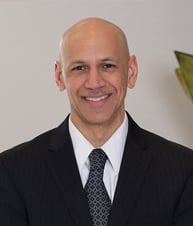The Federal Communications Commission (FCC) issued a Notice of Proposed Rulemaking for the Telephone Consumer Protection Act (TCPA), addressing various issues surrounding consent by consumers to receive automated calls and texts. Generally, the TCPA restricts robocalls and robotexts without the prior express consent of the called party or a recognized exemption. However, the TCPA does not define “prior express consent” or provide any guidance on how consumers can provide or revoke consent. Instead, the FCC has provided some guidance in the past on express consent.
The FCC’s proposed rule will affect both callers and consumers because it will (1) now codify the FCC’s past guidance on express consent; (2) require callers to honor do-not-call and revocation-of-consent within 24 hours of receipt; (3) rule that one-time text messages to confirm revocation do not violate the TCPA; and (4) require wireless carriers to honor requests to cease automated calls and text messages.
We encourage companies and other entities that connect to their consumers by automated calls or texts to consider submitting comments. Comments and reply comments on the FCC’s Notice must be submitted by July 31, 2023 and August 14, 2023, respectively, and can be filed using the FCC’s Electronic Comment Filing System.
New Rule Clarifies and Strengthens Consumers’ Rights Under the TCPA to Grant and Revoke Consent
The FCC’s proposed rule strengthens consumers’ rights in four ways.
First, it ensures that revocation of consent should be reasonable and does not require the use of specific words or burdensome methods. Specifically, the FCC proposes a rule that would make clear that consumers can revoke prior express consent by using words that express a desire to opt out of future automated messages, such as “stop,” “revoke,” “end,” or “opt out.” Entities sending the automated messages may not infringe on that right by designating an exclusive means to revoke consent that precludes the use of any other reasonable method.
The FCC further proposes to codify that, when a consumer uses any reasonable method to revoke consent such as sending “STOP” or a similar message in reply to an incoming automated text message, doing so creates a presumption that the consumer has revoked consent, unless there is evidence to the contrary.
The FCC also warns entities initiating automated text messages that choose to use a texting protocol that does not allow reply texts that they bear the risk of potential liability under the TCPA unless they both provide a clear and conspicuous disclosure on each text to the consumer that two-way texting is not available due to technical limitations of the texting protocol and clearly and conspicuously provide alternative ways for a consumer to revoke consent, such as a link or instructions to text a different number.
Second, it requires that callers honor company-specific do-not-call and revocation-of-consent requests that are subject to the TCPA within 24 hours of receipt. The proposed rule also amends the FCC’s previous rules for exempted package delivery calls to require that such callers honor an opt-out request immediately so that these callers are placed on equal footing with other exempted callers.
Third, it codifies its previous decision that consumers only need to revoke consent once to stop getting all robocalls and robotexts from a specific entity. However, entities may send a one-time text message confirming a consumer’s request that no further text messages be sent without violating the TCPA as long as the confirmation text only confirms the opt-out request, does not include any marketing or promotion information, and is the only additional message sent to the called party after receipt of the opt-out request.
This codifies the FCC’s Soundbite Declaratory Ruling, where the FCC noted that “confirmation messages ultimately benefit and protect consumers by helping to ensure, via such confirmation, that the consumer who ostensibly opted out in fact no longer wishes to receive text messages from entities from whom the consumer previously expressed an affirmative desire to receive such messages.”
In response to a petition seeking confirmation that the text sender may request clarification in its one-time confirmation message of the scope of the recipient’s revocation request when that recipient has consented to receiving multiple categories of informational messages from the sender, the FCC proposes to codify that senders can include a request for clarification in the one-time confirmation text as long as the sender ceases all further robocalls and robotexts unless there is an affirmative response from the consumer that they wish to receive further communications from the sender. This proposed clarification is strictly limited to informing the recipient of the scope of the opt-out request without some further confirmation from the consumer that they wish to continue receiving certain categories of text messages from the sender.
A lack of any response to the confirmation call or text must be treated by the sender as a revocation of consent for all robocalls and robotexts from the sender. No further robocalls or robotexts can be made to the consumer. Additionally, a “STOP” text sent in response to the one-time request for confirmation does not then allow the text sender to send another request for further clarification. According to the FCC, both industry and consumer groups support this proposal.
And fourth, it requires wireless carriers to honor its consumers’ requests to stop autodialed, prerecorded voice, and artificial voice calls and autodialed texts. Following the FCC’s 1992 conclusion that wireless carriers need not obtain consent before initiating autodialed, artificial voice, or prerecorded voice calls to their own subscribers because these communications were not charged to the called party, Congress amended the TCPA to grant the FCC express statutory authority to exempt from the prior-express-consent requirement calls to wireless numbers that are not charged to the called party subject to such conditions as the FCC deems necessary to protect the privacy rights afforded under the TCPA.
The FCC now proposes to revisit the 1992 ruling that “cellular carriers need not obtain additional consent from their cellular subscribers prior to initiating autodialer and artificial and prerecorded message calls for which the cellular subscriber is not charged.” Instead of that blanket exemption for all wireless calls the subscriber is not charged for, the FCC proposes to create and codify a qualified exemption for informational robocalls and robotexts from wireless providers to their subscribers if, and only if, the following conditions are satisfied:
(A) voice calls and text messages are initiated by a wireless service provider only to an existing subscriber of that wireless service provider at a number maintained by the wireless service provider;
(B) voice calls and text messages must state the name and contact information of the wireless provider (for voice calls, these disclosures must be made at the beginning of the call);
(C) voice calls and text messages must not include any telemarketing, solicitation, or advertising; (D) voice calls and text messages must be concise, generally one minute or less in length for voice calls or 160 characters or less in length for text messages;
(E) a wireless service provider may initiate a maximum of three voice calls or text messages during any 30-day period;
(F) a wireless service provider must offer recipients within each message an easy means to opt out of future such messages; voice calls that could be answered by a live person must include an automated, interactive voice- and/or key press-activated opt-out mechanism that enables the call recipient to make an opt-out request prior to terminating the call; voice calls that could be answered by an answering machine or voice mail service must include a toll-free number that the consumer can call to opt out of future calls; text messages must inform recipients of the ability to opt out by replying “STOP”; and,
(G) a wireless service provider must honor opt-out requests immediately.
The FCC believes this exemption balances the privacy interests of the TCPA with the legitimate interests of wireless providers in communicating with their own subscribers. The FCC provides wireless providers options to avoid violating the TCPA, though it is unclear how effective those options will be to wireless carriers. One option, for example, is for wireless providers to use a live agent or equipment that does not constitute an autodialer to communicate with its subscribers without violating the TCPA, since the TCPA only restricts calls initiated with an autodialer or using an artificial or prerecorded voice to a wireless telephone number. Another option is for wireless providers to obtain the prior express consent of their subscribers to avoid the need to rely on this exemption and its accompanying conditions.

